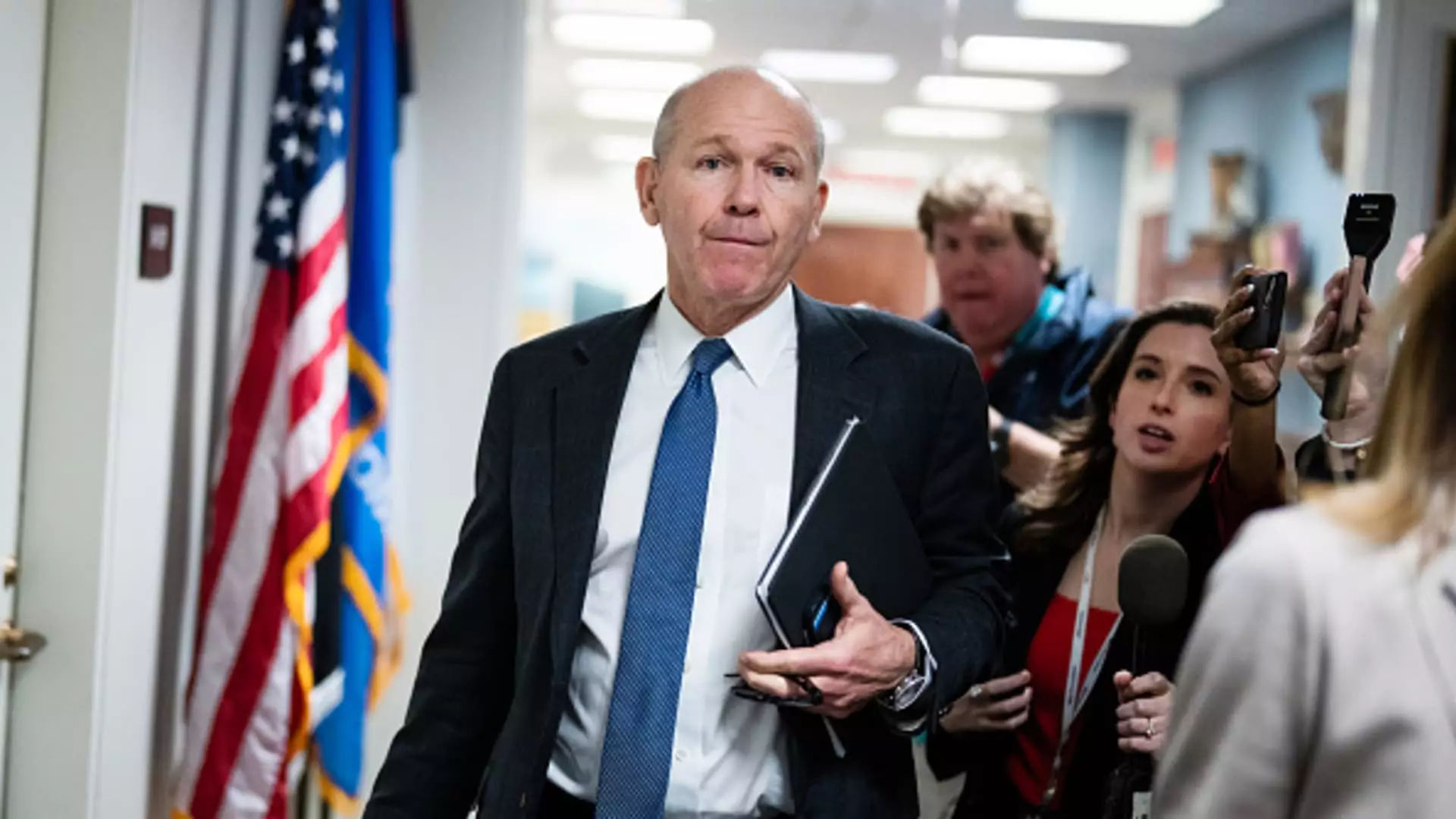Boeing CEO Dave Calhoun will be testifying before a Senate panel to address the company’s safety and manufacturing crises. The recent incident of a door panel blowing out of a nearly new 737 Max 9 jet in January has raised concerns about the company’s safety practices and quality control. Calhoun, who has announced his plans to step down by the end of the year, will face questions from the Senate Permanent Subcommittee on Investigations regarding the steps being taken to improve employee training, aircraft quality, and repair the damaged safety reputation of Boeing. The company is still in search of a suitable replacement for Calhoun, who took over leadership after the removal of the previous CEO due to his handling of two fatal Boeing crashes.
Boeing has been under scrutiny for its corporate culture and safety practices. Calhoun acknowledges that while the company’s culture is not perfect, they are actively taking measures to address the issues and make progress. The company is also facing potential U.S. prosecution after the Justice Department announced that Boeing had violated a 2021 settlement related to the 737 Max crashes in 2018 and 2019, which resulted in the loss of 346 lives. The Justice Department has until July 7 to decide whether to pursue charges against Boeing.
The Federal Aviation Administration (FAA) has taken a tough stance against Boeing, keeping inspectors grounded at the company’s facilities until they are satisfied with the safety improvements. The FAA has also halted Boeing’s production increase of the Max aircraft, affecting the company’s ability to deliver planes to customers. This crisis has led to a decline in Boeing’s aircraft output, impacting major customers like Southwest Airlines and United Airlines who have had to readjust their growth and hiring strategies.
Boeing’s lower production levels and reduced deliveries have had financial repercussions, affecting the company’s cash flow. Investors were warned last month that Boeing would be experiencing negative cash flow instead of generating profits for the year. As a result, Boeing’s shares have declined by more than 30% this year, contrasting with the S&P 500’s 15% increase. The company is striving to eliminate quality defects in its jets and reduce production errors by addressing defects and improving production processes.
Supply Chain Issues
In addition to its internal challenges, Boeing is also facing supply chain issues with major suppliers like Spirit AeroSystems. The supplier recently disclosed that titanium had entered the supply chain with falsified documents, although subsequent tests confirmed the material to be of the required standard for aircraft-grade titanium. Boeing is in the process of acquiring Spirit AeroSystems, with Calhoun foreseeing the deal’s completion in the first half of the year.
Boeing’s CEO testimony before the Senate panel sheds light on the company’s ongoing safety and manufacturing crises. The challenges faced by Boeing have resulted in financial setbacks, regulatory scrutiny, and supply chain issues, necessitating a concerted effort to address the underlying problems and regain stakeholders’ trust.

